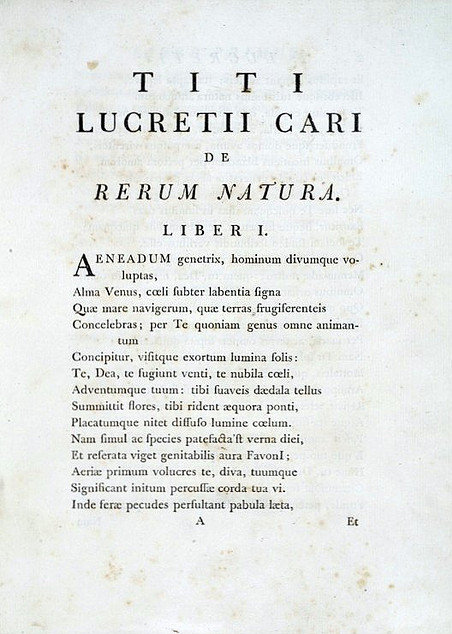On the Nature of Things, Titus Lucretius Carus, translated by William Ellery Leonard, Project Gutenberg, 1997
Lucretius’ didactic poem De rerum natura (On the Nature of Things) is an appeal to the material existence and evolution of the universe that would free humankind of religion and fear of death. In contrast to Greek philosopher Epicurus, Lucretius propagates a life of sobriety and sangfroid. The substance of the universe is made of emptiness and atoms. That is all. Yet the gripping intrigue of Lucretius’ poem weaves itself in the sometimes jagged but driving force of his verses, in the lyrical evocation of nature and in his luminous metaphors.
The Rerum natura is an empirical entreat to all the senses making an analogy between sounds of language and atoms. Just as the world is made up of elementary particles, the Nature of Things is in itself a material universe of all things that touches the soul, a soul that too is made up of things.
On stones and life, perhaps Lucretius was perhaps the first geo-philosopher:
—Do you not see even stones yield to the power of time, lofty towers fall to decay, and the rocks molder away? Temples and statues of the gods go to ruin, nor can the gods themselves prolong their date or get reprieve from fate.
—Constant dripping hollows out a stone.
—What once sprung from the earth sinks back into the earth.
